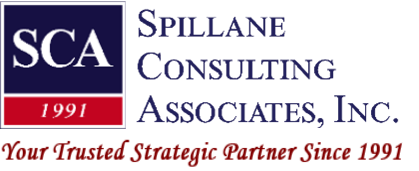Navigating the New Era: Mastering Skills for Hybrid Workforce Success
Written by: John Spillane, Donna Thaxter, and George DeMello
In our previous article, we delved into the impact a well-crafted hybrid workforce plan can have on talent acquisition and retention. Here, we're taking a deeper dive into the skills HR leaders and department managers can focus on as they adapt to this evolving era of talent management.
Reflecting on 2020, when the pandemic forced a sudden and complete shift to remote work, many of us found ourselves operating in survival mode. Since then, we've learned valuable lessons through trial and error, yet many leaders still struggle with getting hybrid and remote leadership right.
This article highlights five essential skills hybrid team leaders need to promote team success:
1. Master New Communication Tools and Skills:
Embracing new communication tools and techniques fosters engagement and establishes clear expectations. In a hybrid world, ensuring information equity, where all team members have equal access to organizational updates, process developments, job opportunities, and more, is crucial. This requires adapting to new meeting technologies and exploring synchronous and asynchronous communication options to promote collaboration in a manner that was once natural in face-to-face settings.
2. Foster Connection and Inclusivity:
The second skill for hybrid leaders is cultivating connection and inclusivity within their teams. In hybrid work environments, interactions can quickly become transactional. Leaders must find ways to communicate formally and informally, whether virtually or on-site and seek business and social reasons to bring the team together. One-on-one check-ins and team meetings should emphasize how each employee's work contributes to the larger picture.
3. Coach and Develop:
A 2023 Gallup study revealed that meaningful, development-focused conversations (coaching sessions) can significantly boost team engagement. These conversations, distinct from task directives and guidance, revolve around addressing challenges and celebrating successes, all with a developmental focus. The duration of these meetings can vary from brief exchanges to hour-long sessions, with the key being agreed-upon action steps and identification of tools and support needed.
4. Lead with Empathy:
Leading with empathy connects the dots between fostering connections and coaching. Managers armed with knowledge about necessary skills that hybrid and remote team members need—Organization, Time Management, Self-direction, Proactive Communication, Goal Orientation, and Personal Accountability—can help employees self-identify strengths and areas needing improvement. Using empathy, managers can uncover the unique root causes of struggles and work toward productive solutions.
5. Enable Strategic Productivity:
This skill builds upon the four competencies mentioned above and requires involving the team in creating a shared vision and definition of success. The process entails team discussions to identify individual and shared priorities and goals, leading to agreements about what the team can expect from each other.
As we analyze these top five hybrid leader competencies, it’s evident that effective communication is at the core of leadership and team success. It’s also clear that communication needs and demands in a hybrid or remote work environment differ significantly from those in traditional on-site workplaces.
We invite you to contact SCA to learn more about coaching and developing your team leaders for remote and hybrid success. We are ready to partner with you to optimize your approach to implementing a hybrid workforce strategy. Our team of diverse consultants boasts extensive expertise in leadership development, training, change management, technology, and operational optimization.

